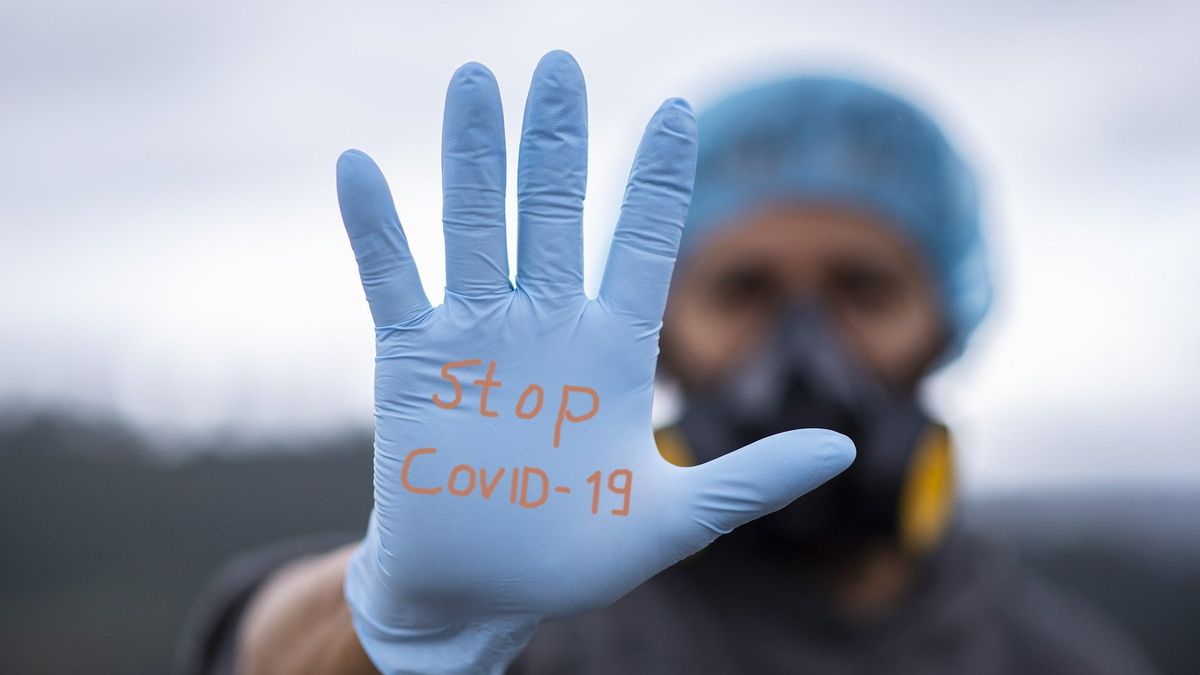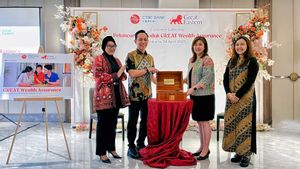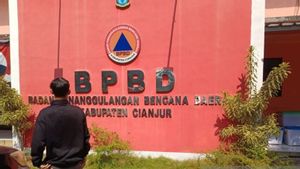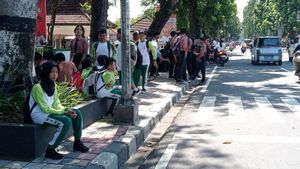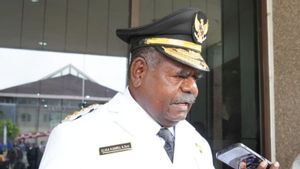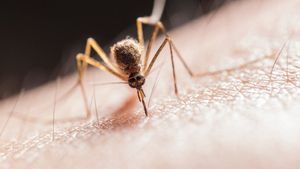JAKARTA - The implementation of restrictions on community activities (PPKM) in Java and Bali is considered ineffective. Not only by President Joko Widodo (Jokowi), a number of regional heads have also admitted that this regulation has not succeeded in reducing the rate of increasing COVID-19 cases in the country.
Deputy Governor of DKI Jakarta Ahmad Riza Patria acknowledged that restrictions on community activities that were implemented since January 11 and are still ongoing today, are not effective in preventing the transmission of COVID-19 in the community. This is because the number of COVID-19 cases in Jakarta has actually increased.
As of February 1, there were 24,793 active cases of COVID-19 with an accumulation of 273,332 cases. Meanwhile, the positive rate of the number of specimens subjected to PCR examination or the positivity rate was 17.4 percent.
"In the evaluation, PPKM has not produced good results as we hope. This is due to the long year-end holidays," Riza told reporters in Jakarta, Tuesday, February 2.
In addition to the impact of the year-end holidays, this Gerindra Party politician also considers the high number of COVID-19 cases also due to people who are tired of staying at home. Thus, many travel outside and meet many people.
In addition, said Riza, this was also due to the high number of COVID-19 examinations in DKI. "The rate of spread is also high due to the high number of testing conducted by the DKI Jakarta Provincial Government, which is 111 thousand in a week. This means that it is 11 times higher than what the WHO requested," said Riza.
Even though the PPKM did not have optimal results in making cases, he considered the policy a good thing because it uniform restrictions in a number of regions.
"This PPKM is good. Why? Because, with this PPKM, the central (government, red) uniform policies from all regions. Not only Jakarta or Jabodetabek, but also all Java and Bali," he said.
In line with Riza, the Governor of North Sumatra, Edy Rahmayadi, also considered the PPKM to be ineffective. This policy was ineffective, he said, because the mobility of the people was still high even though his government had tried to suppress the spread of COVID-19.
"We have been doing this for a year, every night we do sweeping, discipline the community, night efforts. But the implementation is still cat and mouse," he said.
In fact, to prevent the spread of COVID-19, participation from all levels of society is required.
"We should join hands together to carry out discipline, education, socialization to the community. So that COVID-19 can be stopped, press. Our task now is to discipline, so we can overcome COVID-19 exposure," he said.
Previously, President Jokowi had said that the implementation of these restrictions was far from effective. He conveyed this during a limited meeting with a number of ministers and broadcast on the Presidential Secretariat YouTube on Saturday, January 30.
Not only was it ineffective, at that time, in front of his assistants he said that the imposition of these restrictions also tended to be inconsistent and consistent.
"I want to convey that regarding the PPKM on January 11 to 25, we have to say what it is. This is ineffective. Mobility is still high. Because we also have a mobility index so that in some provinces the COVID-19 continues to rise," said the former Governor DKI Jakarta.
So, he then asked the ministers in his cabinet to involve epidemiologists when drafting policies related to handling the COVID-19 pandemic in the country.
"In fact, the essence of PPKM is to limit mobility, that's just a limitation of community activities. But what I see is that in its implementation we are not firm and inconsistent. This is just a matter of implementation," he said.
The response from the COVID-19 Task Force regarding the opinion that the PPKM was ineffectiveVarious assumptions that the PPKM was ineffective were then responded to by the Spokesperson for the Task Force for Handling COVID-19 Wiku Adisasmito. He said, this restriction could only be effective in reducing the rate of transmission of COVID-19 if the community complied with health protocols.
"The point is that the implementation of PPKM in Java-Bali can run if the community complies with the 3M health protocol, and other provisions that apply during the PPKM period, and the enforcement of PPKM regulations by local governments," Wiku said in a press conference broadcast by the Presidential Secretariat YouTube account, Tuesday , February 2.
He said, so far there were still many people who did not comply with health protocols and many still carried out mobility from one place to another. As a result, this policy cannot prevent the transmission of COVID-19 in the community.
Therefore, in the future the government will review the policies that have been implemented so far to prevent the spread of this virus in the community.
"The government will certainly study various policies to suppress the increase in positive cases that have emerged in society," he said.
Epidemiologist: evaluation needs to be doneEpidemiologist from Australia's Griffith University Dicky Budiman assessed that it is time for the government to evaluate the restriction regulations in the Java-Bali region.
"This is the time to really be a period of a thorough evaluation of the strategy that has been done," Dicky told VOI.
This thorough evaluation is important because the PPKM policy, which is actually the same as the social distancing activities that have been carried out since the beginning of the pandemic, has not succeeded in reducing the number of COVID-19 cases.
Furthermore, he said that the PPKM in Java-Bali was not right because he considered the implementation of 3T, namely testing, tracing, and treatment not being implemented properly.
"So in Java this is not appropriate because this PPKM should be accompanied by massive 3T strengthening. Say 200 thousand tests a day, with tracing 80 percent of contact cases and immediate quarantine is carried out," he said.
"This is what should be done. But, even if you don't want PSBB or PPKM to be carried out, the consequence is that you will carry out massive testing with strict tracing and restrictions are still carried out. So it is a must," he concluded.
The English, Chinese, Japanese, Arabic, and French versions are automatically generated by the AI. So there may still be inaccuracies in translating, please always see Indonesian as our main language. (system supported by DigitalSiber.id)
